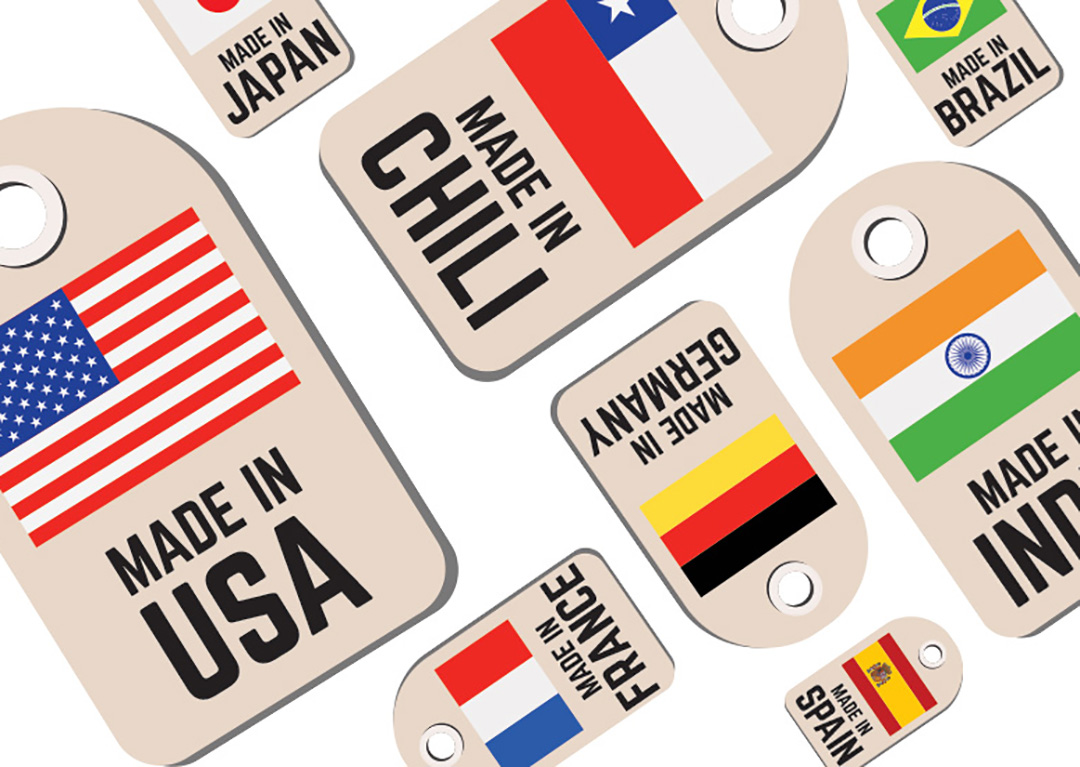When Brands Aren’t From Where You Think
A brand’s country of origin plays a significant role in shaping consumer perceptions. However, in our globalized world, it is not uncommon for consumers to misunderstand where brands truly originate.
Research shows that consumers do not necessarily know the true origin of the products they purchase, with correct identification rates varying from as high as 72% to a low of 22%. These findings imply that a sizeable proportion of consumers hold erroneous beliefs about the origin of brands, which could affect brand-related responses differently.
But what happens when consumers discover they have been wrong about where a brand actually comes from? Do they change their opinions? Their buying intentions? And what factors influence these reactions?
Brand Origin Misperceptions
Brand origin misperceptions occur when consumers mistakenly believe that a brand comes from a different country than it actually does. For instance, a luxury brand might be assumed to be French when it’s actually German, or a tech brand thought to be American might turn out to be Korean. These misperceptions can happen for various reasons, including brand marketing strategies, the brand’s name, or cultural associations.
The Consequences of Discovering the Truth
Our study explores what happens when consumers learn the true origin of a brand they had misclassified. The findings reveal that this new information can lead to significant changes in how consumers evaluate the brand. These changes are not uniform; they depend on several factors, including whether the actual origin is seen as more or less favorable than the perceived origin.
Cognitive re-evaluation: Consumers adjust their opinions on the quality and performance of a brand once they learn its true origin. If the actual origin is perceived more positively than the initially assumed origin, consumers are likely to rate the brand more favorably. Conversely, if the true origin is viewed less favorably, their cognitive evaluations of the brand decline.
Affective re-evaluation: Emotional responses to a brand also shift. However, we find that affective re-evaluations—how much consumers like or feel attached to a brand—only occur if the actual origin has a worse country image than the perceived origin. For example, discovering that a brand is from a country with a less prestigious image decreases the brand’s emotional appeal.
Why Some Brands Are Affected More Than Others
Not all brands experience the same level of impact from these origin misperceptions. Our results highlight several factors that can either amplify or mitigate the effects of learning a brand’s true origin:
Confidence in brand origin identification: If consumers were highly confident in their initial belief about a brand’s origin, discovering a misclassification can lead to more significant changes in their affective evaluations.
Consumer ethnocentrism: Contrary to previous studies, we find that ethnocentric consumers (i.e., consumers who think purchasing foreign products is undesirable or even morally questionable) were less likely to adjust their cognitive brand re-evaluations.
Brand familiarity and strength: Well-known and strong brands might be less affected by these misperceptions because consumers already have established opinions that are harder to change.
Brand origin misperceptions do not appear to have predominantly negative consequences, as some studies have argued; rather, they can have positive and negative effects on outcomes depending on the type of misclassification (favorable or unfavorable).
Implications for Marketers
For marketers, these findings underscore the importance of managing brand origin perceptions carefully. If consumers discover that a brand’s true origin differs from what they believed, it can lead to shifts in brand evaluations and potentially impact sales. Deceptive origin strategies might provide short-term benefits but could backfire if discovered, potentially damaging brand trust and evaluations. Therefore, brands should be transparent about their origins or ensure that their marketing aligns with the perceptions they wish to create.
The Bottom Line
Brand origin plays a crucial role in shaping consumer perceptions and purchase intentions. When consumers learn that their beliefs about a brand’s origin were wrong, it can lead to significant re-evaluations, both cognitively and emotionally. For brands operating in a global market, understanding and managing these perceptions is key to maintaining a brand’s appeal.
Disclosure: This blog post was created with partial assistance from AI tools.
Full reference: Mandler, Timo, Fabian Bartsch, and Katharina Zeugner-Roth (2023), “Are Brands Re-Evaluated When Consumers Learn about Brand Origin Misperceptions? Outcomes, Processes, and Contingent Effects,” Journal of Business Research, 164 (C), 113941. https://doi.org/10.1016/j.jbusres.2023.113941
Cite for: Brand origin misperceptions, country-of-origin, country (product) image, confidence in brand origin identification, consumption motivation, brand evaluation, brand affect, within-subject design, two-step factor score regression




